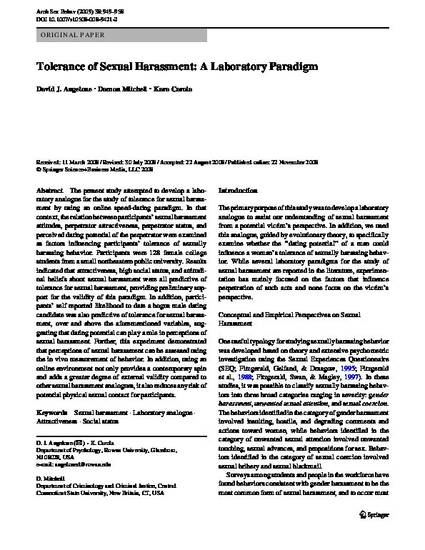
The present study attempted to develop a laboratory analogue for the study of tolerance for sexual harassment by using an online speed-dating paradigm. In that context, the relation between participants’ sexual harassment attitudes, perpetrator attractiveness, perpetrator status, and perceived dating potential of the perpetrator were examined as factors influencing participants’ tolerance of sexually harassing behavior. Participants were 128 female college students from a small northeastern public university. Results indicated that attractiveness, high social status, and attitudinal beliefs about sexual harassment were all predictive of tolerance for sexual harassment, providing preliminary support for the validity of this paradigm. In addition, participants’ self reported likelihood to date a bogus male dating candidate was also predictive of tolerance for sexual harassment, over and above the aforementioned variables, suggesting that dating potential can play a role in perceptions of sexual harassment. Further, this experiment demonstrated that perceptions of sexual harassment can be assessed using the in vivo measurement of behavior. In addition, using an online environment not only provides a contemporary spin and adds a greater degree of external validity compared to other sexual harassment analogues, it also reduces any risk of potential physical sexual contact for participants.
Available at: http://works.bepress.com/david-angelone/1/
